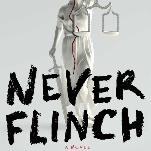Everything Is Possible

Fischerspooner's 2002 album #1 came out just as the hype about electroclash was shifting into backlash mode, and since the New York neo-technopop collective was perhaps the genre's best-known entity, it caught the brunt of the bursting bubble. Also, #1 wasn't very good—it mostly reworked existing Fischerspooner club singles into overproduced, overthought bombast, geared for an over-the-top stage show. The band's new album, Odyssey, improves its recording style significantly. Fischerspooner still underdevelops its melodies and overcooks its mixes, but Odyssey contains a fair number of songs like the opener, "Just Let Go," a lean dance track with a memorable chorus, buzzing guitars, and some deft keywork. And at its best, the band whips up songs as exquisite as "A Kick In The Teeth," a pretty, atmospheric pop ballad that balances romantic resignation with a swinging sophistication, insisting that the end of an affair isn't the end of the world. Odyssey ends with "Circle," which works a minimalist melodic signature into the kind of mantra-like electro-noise that M83 specializes in. It's nothing that dozens of other electronic music acts don't do better, but it's exciting as a capper to another album of processed blips and bloops.







































